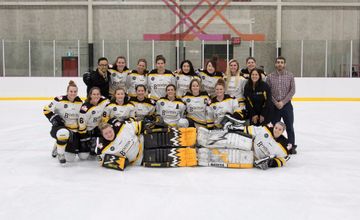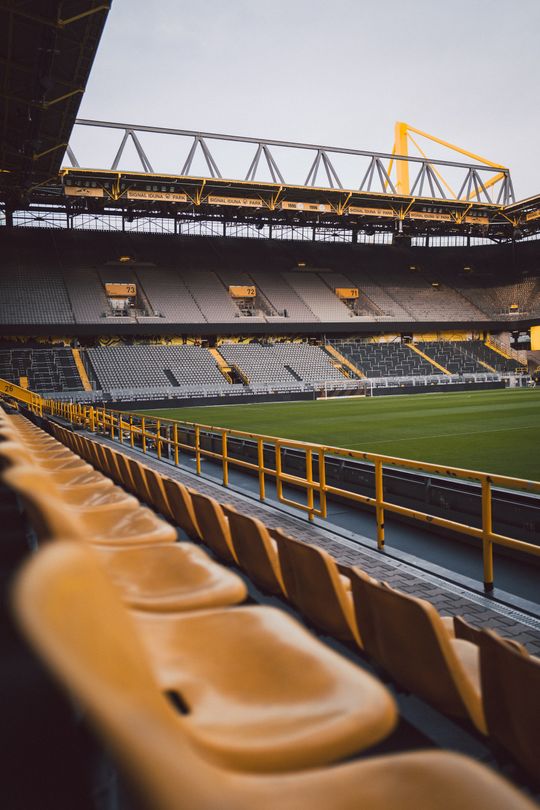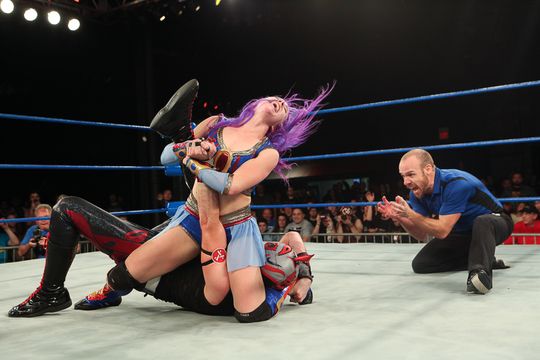"When I first started my career, I never thought of myself as a girl wrestler," Jessica Medina tells me. "I thought of myself as one of the guys on the team. I think that was because I had to survive in that world, so I had to take on that mentality."
Jessica is the new Women's Director for Beat the Streets Philadelphia, where I wrestled throughout high school. Though East Coast cities are a beast in and of themselves, Medina is no stranger to the city life; she hails from Pomona, CA, which is right outside of Los Angeles. She's been on several National Teams, two World Teams, and was a contender for the 2016 Olympic Team before having her career tragically cut short by injury at the team trials. Though she made a successful career from handing out beatdowns, she now spends her days bouncing between practice sites across the city, working extra hours, and mentoring hundreds of student-athletes from all corners of the Greater Philadelphia area and all walks of life.

She's put much of her life into helping mold USA Wrestling into a force on the world stage, and still does so. Maybe not surprisingly, she still has to prove that today. We talked about the general perception of the not-so-typical wrestler and much of it honed in having to constantly validate presence.
"When I walk into a wrestling room, eyes are on me, and there's a lot of judgement. Whether I'm gonna fail, whether I'm gonna be able to hang at practice, what my skills are, what my abilities are, how athletic I am, what my intentions are in the room," she recounts as we compare stories of being the odd one out.
"Being Hispanic, being in a male-dominated sport, I realized that even though my goal wasn't to set out and break barriers and glass ceilings, I was doing that. I was realizing there was a community behind me supporting me. There are some girls who get questioned on why they'd even go to college, let alone wrestle in college! It's about knowing that you're going be the only person on the journey sometimes... here, women's wrestling is definitely solidified, in my mind, as a respectable sport, but I'm still here convincing people why girls should even be on a mat," she says. "Wrestling is still so old school."
I hold back my excitement as I realize the amount of work that had to go into paving the way for my generation of wrestling. Participating in wrestling lets a city kid like me get away, if only for two hours or so.
We say our goodbyes in a rush, and I take the elevator down to the ground floor, while two BTSP wrestlers tried to scurry in behind me. She playfully commands them to the staircase, half-workout, half-needing to rush to her car before the parking meter ran out. They're headed to a 6 PM summer practice to get ready for off-season tournaments that help to highlight wrestlers that aren't necessarily in the spotlight.
I was the first BTSP wrestler to go to the highly touted Cadet/Junior Nationals tournament, which has been coined "Fargo" for its regular home in Fargo, ND. Back then, we weren't sure when Philadelphia would get their first breakthrough wrestler; this year, four BTSP wrestlers -- one a returning All-American in nationally ranked Miles Lee -- will take the 25-hour bus-ride to the Midwest with Team Pennsylvania, as will so many more wrestlers across the nation that Medina mentions in her journey to where she stands today.

More than anything, wrestling has shown me that breaking barriers isn't something that one necessarily sets out to do. Sometimes, simply existing is enough. Through adversity from all sorts of directions, women's wrestling has always proven itself to be a sport worth fighting for, with athletes that will double-up as proof of its power. Pervasive and generational sexism make it difficult for women's sports in the United States across the board to make breakthroughs, despite the constant confirmation by athletes that women can compete on the same level as anyone else. Girls and women have achieved their goals in wrestling across the world, but there is something unique about a city school gym that can breed all-around amazing people, one practice at a time. Much like Medina said, however, women’s wrestling isn't being heralded for its full impact on the overall wrestling community and cities across the US. People still demand answers for why girls are taking to the mat.
One of the main reasons that proof is even in the discussion is obscurity. Women's wrestling is even more of a niche sport in the United States than the sport of amateur wrestling, yet this hasn't stopped women's wrestling from growing. Despite significant participation across the globe since its inception in 1987, the first Olympics to include Women's Freestyle wasn't until 2004. In spite of this, here in the States, it's grown at an alarming rate, starting at 804 high school female wrestlers in 1994 to 13,496 in 2016, according to the NFHS. You can check out facts about college-level women's wrestling under the Women's Collegiate Wrestling Association (WCWA) for some surprising points; like how there is more participation in women's wrestling than in four NCAA-sanctioned sports and three NCAA-emerging sports, and that there are 30 varsity programs across the nation.
Narrow this even further into a focus on the city and chances can seem scarce. As a winter sport, wrestling often loses out to basketball and indoor track and field options for participants. We don't grow up with pick-up grappling sessions at the park and Dan Gable motivational posters. There is no favorite singlet to wear on game day. Your friends will not all be dreaming about shooting for the championship-winning takedown as the crowd goes wild. Instead, it's likely that a wrestling room has dwindled down to its tried and true participants by one month into the season, and it isn't uncommon for inner city teams to struggle to fill all 14 high school weight classes. The common mantra is that boys turn into men here. There isn't often so much as a stutter to think about what the girl in the huddle is to do. It's a dark place to work in for those who put in the same work as anyone else in the room -- yet are still ostracized due to their gender.

Step into a weekly Beat the Streets practice, however, and much of that feeling fades away. Suddenly, yet surely, the room starts to look, feel, and smell like the Resilite-padded battleground where champions are made as they come. It can often become difficult to see past the things in your life that are holding you back, and the same follows in wrestling. Though a city kid may never forget they're from the streets, at practice they get a chance to grapple with those struggles and make blessings out of the things that may be detrimental to them in other ways. It's tough to fight institutionalized oppression, late buses and early mornings on a daily basis, but it's pretty easy (and dare I say, fun) to blast-double your partner with the right set-up. This outlet has paved new roads for inner city kids for years, from funding to compete in national tournaments, for more accessibility to coaches, to waived college application fees. This is why the city wrestler is so different; the fight comes from a different hunger and feeds it in ways that no other room knows how to.
Beat the Streets is a program in cities across the country that develops young student-athletes with programs to help in the classroom and on the mats. Since its birth in 2004 in New York City, it has spread to other east-coast metropolitan areas like Philadelphia, Baltimore, and Providence, with new programs coming up every year as far as Los Angeles, Toronto, Detroit, and beyond. Most of these have programs specifically for girl's wrestling, with women's-only practices and support for opportunities like visiting the typically smaller and farther-away colleges that offer women's wrestling and coaching that caters to smaller physiques. Most of these programs also have girls showing up at the boys' practices, too.

I first practiced with a girl in 2010 at a practice that was funded by BTS Philly. She'd be the only girl I'd train with for two years, until I ran into Kait Fitzpatrick at a practice in a Philly suburb. 40 pounds smaller than me, I was shocked when she asked me to be her partner during the live wrestling portion of a practice. I was even more surprised when all 110 pounds of her forced me over for a takedown in front of all my giggling clubmates watching on the wall. She's now a good friend and an All-American who competes for Menlo College in California, where there is much more participation and structural support for women's wrestling than the old-school Midwest and Northeast, where much of the wrestling community is concentrated. In the seven years since then, there's been a significant enough influx of girls stepping to the mat to have multiple girls-only practices throughout the city. It's taken a few decades, but the city is slowly starting to become a haven for women's wrestling.
Still, the prevailing notion is that women's wrestling is in an adjacent position, with the stigma of the only girls wrestling being the super-athlete tomboys walking into a practice and flipping the room on its head with her ability to keep up. In all of this, we lose much of what makes these wrestlers magnificent: they are only doing what they want to do, and trying to be the best at it, just like everyone else with a passion. Being revolutionary just comes with the territory. Jacque Davis, Head Women's Coach at Beat the Streets New York, is a testament to the culture shift that's come with the onset of women's wrestling.
"The girls I get to work with here, they're awesome. With the kids back in my hometown, it's like pulling teeth to get them to wake up at four in the morning to help with a tournament or something," she tells me as she gets more and more animated in the Manhattan-based office. "Here, they're like, 'I'll be there, I'll see you!' and they're there all day, and they'll be at the thing the next day. They're just awesome."

Jacque's in her fourth year in New York, as she hails from small-town California. She went to Menlo College back when the WCWA first started developing, and after a couple of years coaching in her home state, she made the move over to the Northeast after some convincing from her coach, 2004 Olympian Marcie Van Dusen. With its bumps and bruises, Jacque's starting to see a return on the investment of her efforts.
"When I first got here, they didn't have an established culture in the group, at least on the girl's side...There were girls that were just -- I loved them, but they constantly broke my heart because they would make bad choices. They were conditioned to do it. They didn't have people telling them that what they were doing wasn't okay. They didn't have people watching them that closely." Here, I recalled coaches inviting me out to impromptu practice sessions over school breaks to give me something else to do besides getting caught up in the cracks that so easily take thousands of city kids year in, year out.
"That's one of the worst things. Having my heart broken because they make bad choices, or that they're really good, honest, genuine people who are surrounded by bad stuff and can't get out of it, and have had bad stuff happen to them because of their environment and where they live...They're all good people that have bad stuff happen to them because of where they're at, and they can't get out of it."
"But in the past four years, the culture has started to develop. They started policing each other. I didn't have to be the voice in the room to be like, 'This is not good for you, maybe you shouldn't do that', or 'Hey -- you're better, get up, push harder.' Whether it's in the room and they carry it outside of it, you start to see it more in the room, and then they start to carry it outside of that, but they recently picking each other up and started to police each other. The older girl will start to sit down the sixth grader and say, 'Listen'...and they start feeding their lessons down to the next generation."
It's easy to find a sense of family in wrestling when you're mutually responsible for simultaneously pummeling your partner and receiving the same beating. When getting better at something means also helping someone else get better, an intangible bond develops; it's something that I haven't seen or experienced anywhere else. It's hard to take people from such a wide spectrum of lifestyles and put them into one room for a singular purpose, but wrestling takes everyone's best and worst and turns it into a six-minute adventure where nothing else matters. Still, it's comforting to have another city kid who gets it.

Jacque could wax on endlessly about the benefits of this bond, it seems: "They're taking and building this culture, they're taking it and it's trickling down to the next girls, because they're feeding it to them. The ones that come through don't know any different because it's being preached from all directions; from their peers, from me, from our organization. It's definitely exciting. It's the first real time I'm seeing it. It takes time to happen, but it makes me happy. It makes me really happy. They're starting to act as leaders, and that's a big thing. If it's one person, it's hard; but if you take ten of them like that, who are telling ten others like that, who are telling ten others like that...then that's a movement."
When I sat in on a girl's practice at the famed New York Athletic Club the previous day as a group of wrestlers trained for Fargo in mid-July, I saw that movement taking shape. Barry Hart, a BTSNY alum and now coach who I'd often see at national tournaments, was a silent presence in the room, keeping time for drills and helping Jacque show moves for the girls to drill. Here and there he passes by his fiancee and fellow coach, Destane Garrick, who is another BTSNY alum now wrestling at McKendree University. He and two other male wrestlers are very active in the practice, filling in as partners and helping demonstrate the finer points of technique. This symbiotic relationship hasn't escaped Jacque.
"In any Beat the Streets room in the city, I don't think I've seen or heard boys think a certain way about the girls being in the room, or the girls thinking a certain way about boys being in the room. It goes back to a culture...a lot of them are friends with each other."
In a sports landscape where there's often a debate over the fusion of male and female participation, this can be quite the sight. In the city, this overlap is not only becoming more common, but is also becoming another dynamic to the connections that can be made through wrestling.
"The girls are constantly helping at the boy's tournaments and watching them, and they love them and think of them as friends. They hang out with each other, and the boys are constantly helping out at the girl's tournaments, and watching, and working tables, and are very dialed and tuned into the results. If the guys are wrestling at a national thing, the girls are on Flowrestling or track and trying to see how they're doing, and vice versa; the girls are [at] World Team Trials or Fargo and the boys are trying to stay tuned."

A big part of that post-competition return of Beat the Streets alumni to the wrestling world is the interconnectivity. Where others were able to help us through some of the hardest points in our lives, we, too, are able to pass those blessings along to the kids that have so much of us in them.
"I think all of the coaching staff for Fargo, except for Mike Torriero [longtime BTSNY coach], that come from the city are alum. They're all alum that are coming and giving back, and they know what it's like. They can preach to them and relate to [the kids] more than I can.
"They grew up in NYC, went to the same high schools as them...they're not very far away from them. Some of them are in college wrestling, and can tell them, 'What you're doing right now is not gonna get you where you want to go, and I can tell you, because I've already been there and done that. What's gonna make the difference and get you where you want to go, bigger than where I'm at, is this, this, this. Taking these notes. Sitting in the front row of your classes. Whatever it is. Getting your applications done. Following through on your commitments. Communication.' They can preach it more than I can preach it. Who am I? I'm from California. That's the importance of having them on the coaching staff."
These six-minute matches, and the hours of dedication that goes into the preparation for them, suddenly become much more important than accolades and recognition. They become family, survival, coping, and growth. In the world of wrestling, we tend to live by repetition -- hours of drilling the same move, laps around the same mat, and routines that carry us through the motions before we go to battle. This wires the body to do what it needs to do before your opponent can stop it. We may not all become the Olympic champions that we dream to be, but we do find an easier way to navigate this world.
The work being done by women like Jessica, Jacque, and so many more across the country is monumental. More than getting girls ready for their matches, they are shaping the lives of youth wrestlers by teaching love and respect, both for others and for oneself. Coach Medina left me with a comment on her work at Beat the Streets before racing down the stairs:
"I think the biggest impact that [wrestling] has on girls is that it gives you confidence in yourself, in your abilities, and it just empowers you. Even back then, I was tough as nails, and now, as I retire, it's given me a confidence in my career path. When I'm working in the office and it's a high ratio of men to women, I'm not intimidated by that. I'm used to that on the mat."
She added: "It impacts boys and men in wrestling in that it shows that wrestling shouldn't be exclusive... the mat should be an equalizer. It teachers boys to respect others. The tough mentality is killing the sport. It teaches boys to be respectful, because if you want it, you have to give it, no matter who it is."
It is in these difficulties that the impact is made. You're no longer walking to practice by yourself, but with the heart and good intentions of those that give you a reason to get to practice in the first place. We learn much about ourselves in the valleys of life, like how an inner-city wrestling room can give you life lessons that extend way beyond the mat.

All of this occurs in a world that still demands you prove yourself worthy of its allowance, and maybe everything else in life really does become easy by comparison. Women's wrestling is on the rise and taking the rest of the city and wrestling world along with it, and there's nothing that will stand in its way. It's exactly what the sport needs.

A wrestler runs through Central Park in Manhattan as part of a warm-up for a BTSNY Girl's Practice.

Wrestler warms up in Central Park as Head Girl's Coach Jacque Davis holds the niece of Destane Harrick, a BTSNY alum who's helping out with practice.

Wrestlers squat in Central Park in Manhattan as part of a pre-practice warm-up during a BTSNY Girl's practice.

BTSNY wrestlers practice in Central Park in Manhattan during a girls' practice.

Wrestlers practice duck unders in Central Park during a BTSNY girls' practice.

Head Girls' Coach Jacque Davis breaks down the schedule of a BTSNY girl's practice. Most of the wrestlers will be heading to Fargo, ND for the U.S. Marine Corps Junior and Cadet Nationals, July 15-22.

A wrestler goes through a playful circuit as part of a celebration for her birthday before a BTSNY girl's practice at the New York Athletic Club.

A picture of Adeline Gray, NYAC Athlete, celebrating after winning the Pan-American Championships. Gray is a three time World Champion for the United States.

A plaque that hangs in the NYAC Wrestling Room after winning the Women's Freestyle Team Title during the 2015 U.S. Open.

Two wrestlers scramble during a BTSNY practice at the NYAC.
All photography in this story by Davon Clark.






